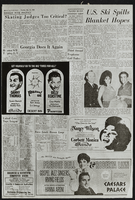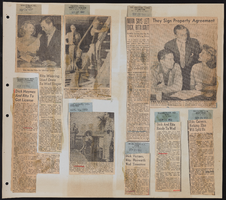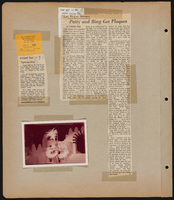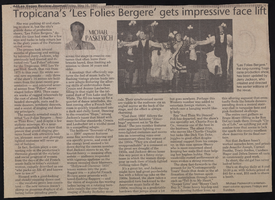Search the Special Collections and Archives Portal
Search Results
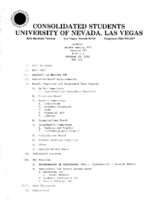
Meeting minutes for Consolidated Student Senate, University of Nevada, Las Vegas, October 26, 1982
Date
Archival Collection
Description
Text
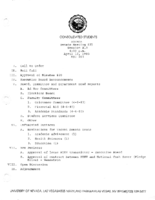
Meeting minutes for Consolidated Student Senate, University of Nevada, Las Vegas, April 12, 1983
Date
Archival Collection
Description
Text
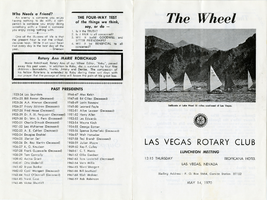
The Wheel Las Vegas Rotary Club newsletter, May 14, 1970
Date
Archival Collection
Description
Text
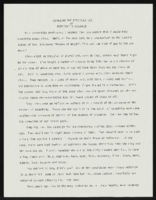
"Expanding the Possibilities": article draft by Roosevelt Fitzgerald
Date
Archival Collection
Description
From the Roosevelt Fitzgerald Professional Papers (MS-01082) -- Drafts for the Las Vegas Sentinel Voice file. On Jesse Jackson's 1987 presidential candidacy.
Text

James Dean Leavitt oral history interviews: transcript
Date
Archival Collection
Description
Oral history interviews with James Dean Leavitt conducted by Claytee D. White on September 27 and October 4, 2022 for the Boyer Early Las Vegas Oral History Project. In this interview, Leavitt recalls his role in establishing a medical school at the University of Nevada, Las Vegas (UNLV), now known as Kirk Kerkorian School of Medicine. Leavitt was elected to the Board of Regents in 2004 while Jim Rogers was interim Chancellor of the Nevada System of Higher Education (NSHE), and he suggested the creation of an ad hoc committee Health Science Center Committee. In 2009, Leavitt became Chairman of the Board of Regents, Dan Klaich became Chancellor, and in the following year, Dr. Mark Doubrava joined the board. In May 2014, the planning dean was hired, Dr. Barbara Atkinson, and the UNLV School of Medicine was officially established on August 22, 2014.
Text

